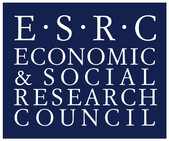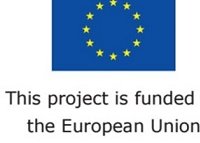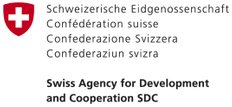Photo: Greg Constantine
Brad Blitz
Research Projects
EVI-MED - CONSTRUCTING AN EVIDENCE BASE OF CONTEMPORARY MEDITERRANEAN MIGRATIONS
Summary
This project seeks to conduct urgent data collection and essential analysis on the Mediterranean migration crisis and to make these swiftly and publicly available to policymakers, practitioners, migrant community support organisations, and the research community.
EVI-MED will provide insights into the major humanitarian, social, economic and political implications for the principal countries of arrival - above all Italy and Greece - as well as Malta which is a central pillar of the search and rescue effort. The project is also relevant to other potential countries of reception and settlement in Europe, including the United Kingdom.
The project benefits from close collaboration with a number of well-established specialist organisations, including the Greek Council for Refugees, the Migrant Offshore Aid Station (MOAS), Migrant Report, Borderline Sicily, People for Change Foundation Malta and with expert knowledge of countries of origin provided by the Regional Mixed Migration Secretariat (RMMS), a project of the Danish Refugee Council working in the Horn of Africa and Middle East. EVI-MED's wide-ranging engagement platform capitalises on the network of collaborations and partnerships working towards the establishment of a Mediterranean Observatory on Migration Protection and Asylum (MOMPA).
INFORM - research on fairer asylum processing
Summary
The project aims to sharpen guidelines for fairer processing of asylum seekers after being receivingawarded a European Commission grant from the Asylum, Migration and Integration Fund to develop a roadmap for enhancing the legal and procedural information provided to asylum seekers.
This two-year project involves comparative analysis in six EU member states – Cyprus, Estonia, Italy, Malta, Italy, Sweden and the UK – in a bid to identify best practice and improve the existing guidelines on how asylum claims are processed.
The study ‘Legal and Procedural Information for Asylum Seekers in the European Union’ seeks to determine how much of a positive impact better legal and procedural information has on an applicant's ability to present their case well, reducing the need for appeals.
In each country, teams will consult asylum determination bodies, NGOs, asylum support and migrant groups and asylum seekers themselves, building an interactive online community to foster best practice. This will result in a manual on ‘information for asylum seekers’ manual for EU-wide fairness which will be showcased in Brussels.
After war and displacement - a Balkan project
Summary
How do the experiences of war and forced migration affect the mental health and well-being of the displaced? This is one of the questions at the heart of a Swiss government funded research project focusing on the experiences of displaced women in Bosnia, Serbia and Kosovo.
While the war in Bosnia ended than 20 years ago; and the conflict in Kosovo was concluded more than 15 years ago, the long term effects of readjustment in the post-conflict context has attracted relatively little interest, in spite of the massive investment from the European Union which seeks to incorporate the former Yugoslavia, by means of formal accession and association agreements and through aid and development ‘road-maps’.
Bosnia and Kosovo are especially interesting to study for social scientists. They are divided societies with cleavages forged not only between ethnic groups but also between political affiliations which reflect interests that emerged during the conflicts. In the case of Bosnia, these interests are structured around those who remained during the war and those who were settled abroad but eventually returned. In highly network based societies, these divisions have frustrated the post conflict settlement and both the above states have made slow progress on the road maps set out by the European Union institutions.
In response to the lack training and tradition of applied research, the Swiss Agency for Development and Cooperation has been funding a series of activities under the Regional Research Promotion Programme for the Western Balkans (RRPP). Between 2008-15, the RRPP has provided over £5 million to foster and promote social science research in Albania, Bosnia and Herzegovina, Kosovo, Macedonia, Montenegro and Serbia.
While refugees, IDPs and returnees may enjoy different levels of protection, there is little comparative analysis of how their treatment in the return context impacts on their eventual integration in the post-conflict state.
What is particularly novel about this project is the way it combines several sub-projects including ethnographic and interview-based research with a large psychometric study aimed at individuals.
Copyright Brad K. Blitz © All Rights Reserved




